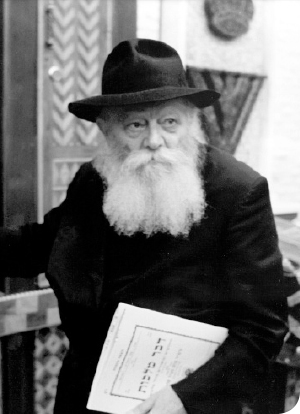“A Jew must strive to be rich in the literal sense and in all respects, beginning with affluence in spirituality…”From Chapter Six of Rabbi Shloma Majeski’s Likkutei Mekoros (Underlined text is the compiler’s emphasis.)
Translated by Boruch Merkur
 11. […] This is the last generation of exile and the first generation of redemption, having completed everything [all aspects of avoda] and the only thing that remains to be done is to welcome Moshiach in actuality. In our times it is certain that G-d blesses each Jew with wealth in gold – in both the material and spiritual sense. G-d blesses Jews with wealth to the extent (as it was “in the days of your exodus from the land of Egypt,” so it is now, “I shall show them wonders”) that “There was not a single Jew among the Jewish people who did not have with him ninety fine donkeys laden with the silver and gold of Egypt.”
11. […] This is the last generation of exile and the first generation of redemption, having completed everything [all aspects of avoda] and the only thing that remains to be done is to welcome Moshiach in actuality. In our times it is certain that G-d blesses each Jew with wealth in gold – in both the material and spiritual sense. G-d blesses Jews with wealth to the extent (as it was “in the days of your exodus from the land of Egypt,” so it is now, “I shall show them wonders”) that “There was not a single Jew among the Jewish people who did not have with him ninety fine donkeys laden with the silver and gold of Egypt.”
From this message about wealth, a direct lesson is derived: A Jew must strive to be rich in the literal sense and in all respects, beginning with affluence in spirituality – “ein ashir eleh b’daas” – striving to be rich in Torah and Mitzvos, but also in material wealth, enabling him to fulfill Torah and Mitzvos with tranquility of spirt and body (in accordance with the ruling in Rambam’s Laws of Repentance, Ch. 9, beg.). Also, wealth is required in order to be generous in giving tz’daka and doing Mitzvos in a beautiful way, the most exquisite manner. And in general, to utilize one’s wealth (“gold, silver, and copper, etc.”) to make of his own home a Mishkan and Mikdash for G-d (“‘I shall dwell within them’ – within each individual”), including by giving tz’daka to build a shul and beis midrash in the literal sense, making a “Mikdash M’at – A miniature sanctuary.”
12. Moreover, and this is the main thing, concerning something timely – building the Third Beis HaMikdash in the literal sense:
Notwithstanding all the interpretations of “Make for Me a Sanctuary and I shall dwell among them” – including the interpretation, “within each individual” – the words do not depart from their literal meaning. First and foremost, this verse pertains to practical halacha – that Jews have the obligation to build the Beis HaMikdash.
To us this means to build the Third Beis HaMikdash in the literal sense, as Rambam writes, Moshiach Tzidkeinu will build the Third Mikdash: “he will build the Beis HaMikdash in its place” (Laws of Kings Ch. 11, beg. and end). And Rambam rules that “All are obligated to build and contribute [to the construction of the Beis HaMikdash with] manpower and money – both men and women – as was the case with the Mikdash in the desert” (ibid, end; as above). Clearly the same applies to the Third Mikdash: every Jew will participate through his or her contributions, both men and women. In fact, also children will participate (as was the case with donations for the Mishkan).
The latter is especially that case insofar as this generation has already educated and accustomed – and we continue to do so – little Jewish children to give tz’daka. In addition to making children agents to give tz’daka, we also give them money that becomes their own in order that they should give of their own money to tz’daka.
(From the address of Wednesday through Shabbos Kodesh, Parshas Truma; Seifer HaSichos 5752 pg. 124-125)